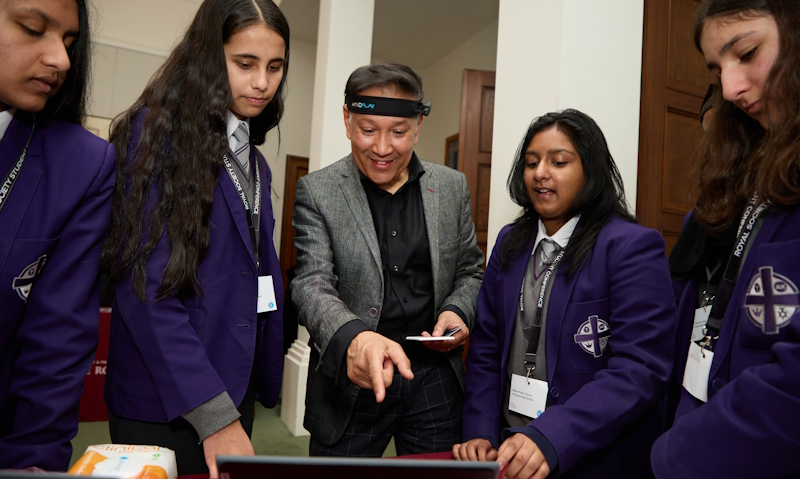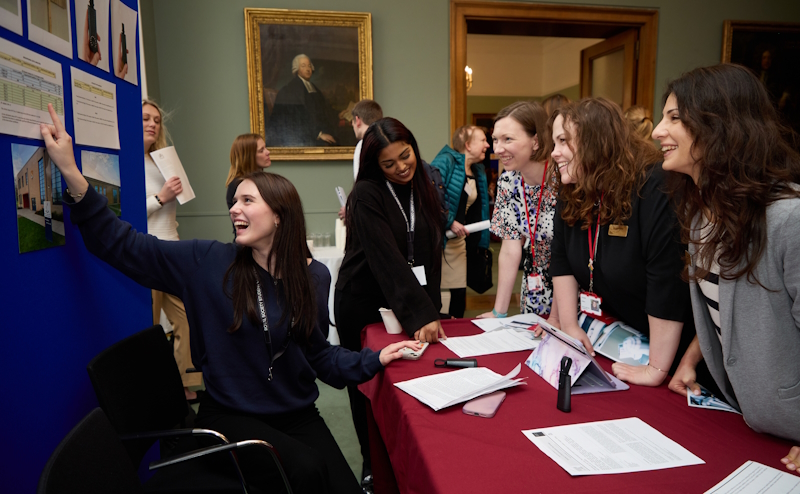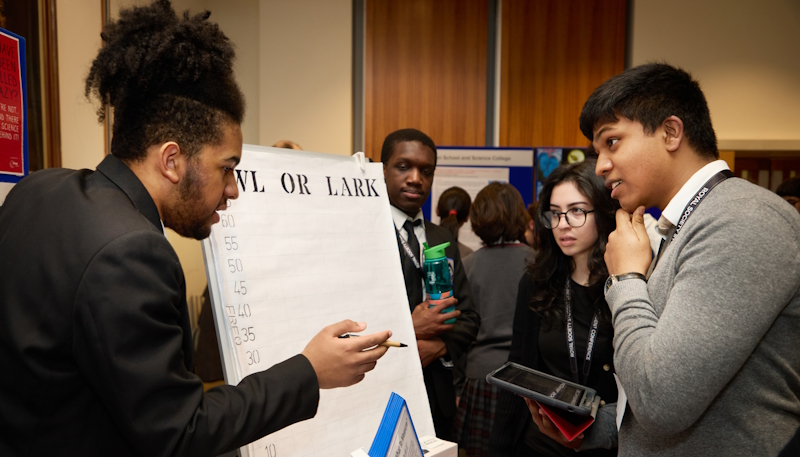Student conference
The Royal Society’s student conference celebrates the work of students, from all backgrounds across the UK, who have undertaken investigative STEM project work via the Royal Society’s Partnership Grants scheme, including Tomorrow's Climate Scientists.
Student conference 2024
The student conference took place on Wednesday 6 March 2024. The event comprised a key note speech by Professor Saiful Islam, student and teacher workshops, and a student showcase where students had stands displaying their work via scientific posters and hands-on interactive elements. The conference provided the students with an opportunity to develop their communication skills, and to discuss their work with Fellows of the Royal Society and other invited guests. The event was concluded by a closing speech from Professor Bryan Turner FMedSci FRS, Chair of the Partnership Grants Allocating Panel. You can download the Royal Society student conference programme here: Royal Society student conference 2024 programme (PDF).
The posters give a more detailed summary of all the secondary level projects presented during the conference. Please click on the list of projects below to see the PDF of each poster.
2024 poster summaries
- Alleyne's Academy - What species of tree will make the best raft?
- Aston Fields Middle School - What factors influence the growth of organic fruit and vegetables that will support a more sustainable future?
- Beaulieu Convent School - Will plants found in the mountains cope with climate change?
- Bedford School - What can DNA barcoding reveal about the phylogenetic relationship of snowdrop species?
- Bilborough College - What is the impact of deprivation on air quality and noise pollution?
- George Stephenson High School - Does the volume, and chemical composition of frass affect the yield and growth rate of certain crops?
- King Edward VI Grammar School - How will the coast around my hometown be affected by climate change in my lifetime?
- Lady Eleanor Holles School - How different could stellar hydrogen burning rates be before life becomes unviable on Earth?
- Magnus Church of England Academy - Can the school use new technology and renewable energy resources to reduce both its energy bills and its carbon footprint?
- Moulton Secondary School and Science College - Can you investigate the effects of changing climatological conditions on pond microflora using flow cytometry?
- Northfleet Technology College - What level of ecological complexity can a (small) urban nature reserve support?
- Simon Langton Girls’ Grammar School - Can we improve air quality in our area by influencing drivers to change their behaviour?
- Sutton High School (Girls' Day School Trust) - Can image and sensor data be collected from remote airborne devices, for ground-based processing?
- Tapton School - Can a single celled yeast be a model organism for neurodegenerative disease?
- The Island Free School - What parameters need to be considered in composite design for real world cases?
- Tynecastle High School - What is the impact of prelim examinations on sleeping patterns in school children?
- Wilberforce Sixth Form College - Can capturing rain water increase biodiversity and reduce flood risk?
- William Perkin Church of England High School - What is the effect of various activities on wave patterns of the brain?



To stay up to date with the latest news about the Partnership Grants scheme and our other opportunities and resources, please sign up to our UK teachers newsletter or contact the Schools Engagement team via education@royalsociety.org.
